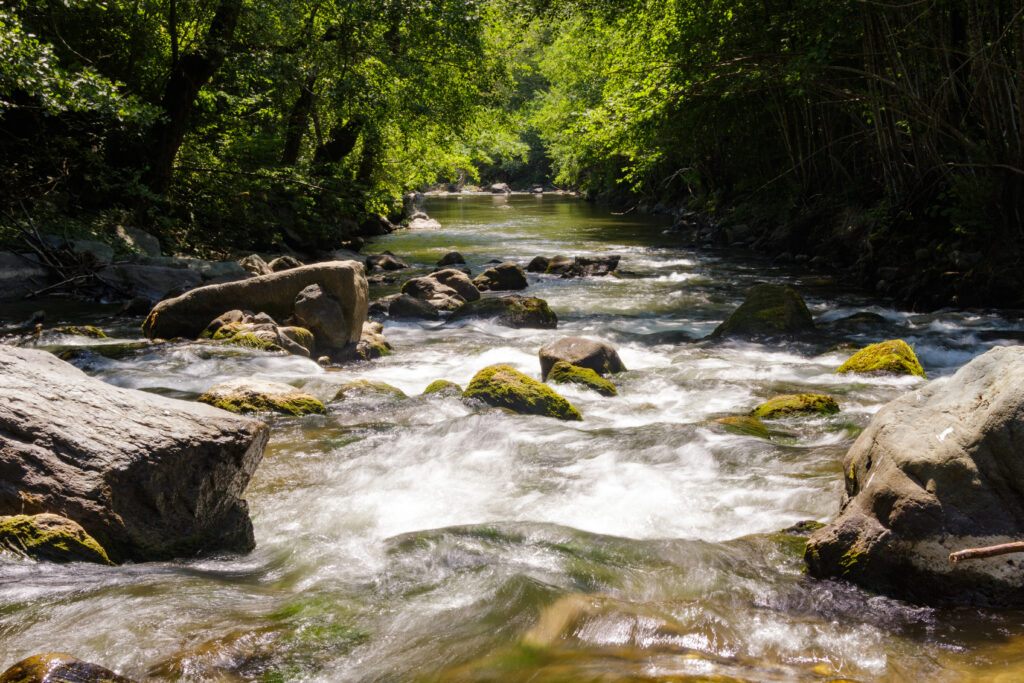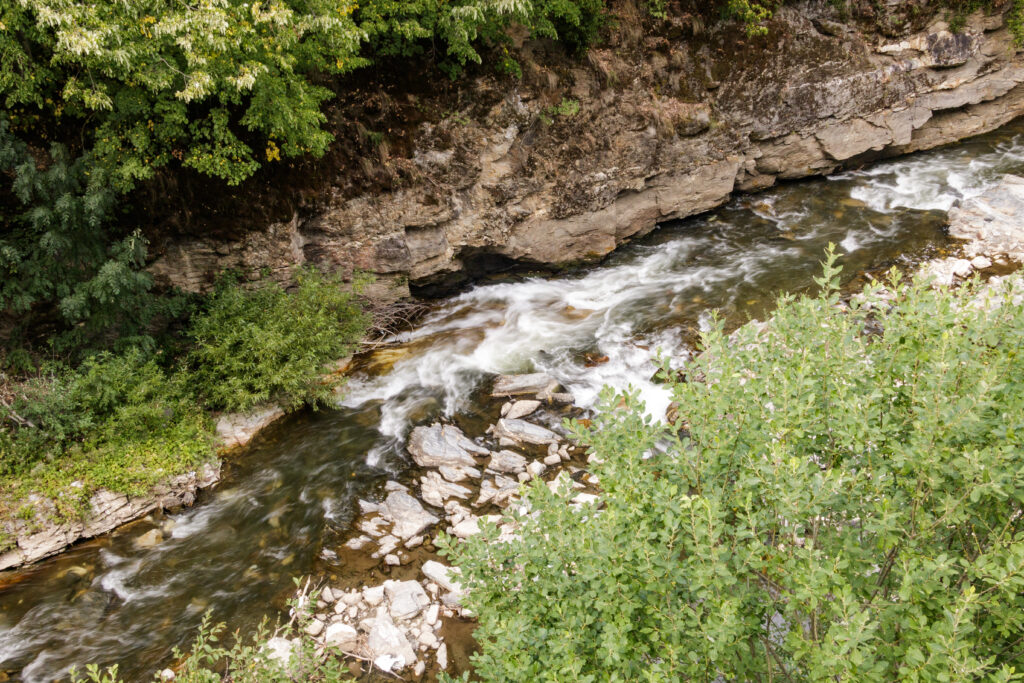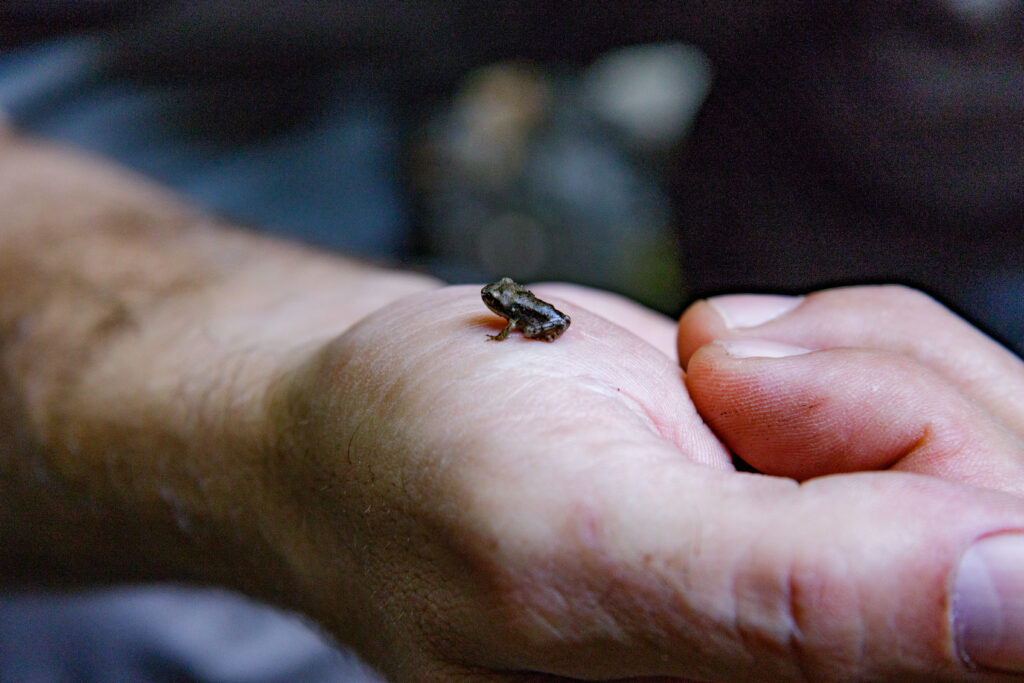Polekol submitted a complaint to the Berne Convention regarding the planned construction of the MHP in Studenica
*English below
The organization for political ecology Polekol sent a complaint to the Berne Convention, warning that the construction of the small hydroelectric plant Gradina on the river Studenica will endanger protected habitats and species of international importance. Studenica is the lifeblood of the Golija Nature Park and the Golija-Studenica Biosphere Reserve, which has been protected by UNESCO since 2001 and is a candidate for the Emerald area of Golija, which speaks volumes about its natural values and the need for preservation, Polekol said.
The investor Hidro-Min from Čačak plans to build a run-of-river hydropower plant “Studenica S4-Gradina” with a capacity of 2.16 megawatts (MW) on the lower course of Studenica, in the territory of the City of Kraljevo. This entails the construction of a 30-meter-high dam with a crown width of 100 meters between the settlement of Usce and the Studenica monastery, and the creation of an accumulation lake about 1.4 kilometers long and about 7.5 hectares in area on the eastern border of the protected area.

Defended death sentence for Studenica
If this project comes to fruition, they warn from Polekol, some protected species and habitats have almost no chance of surviving, and the integrity of the Golija Nature Park will be seriously damaged.
“Once a dam is placed, the species that are connected to mountain rivers absolutely disappear. Fish that inhabit fast-flowing rivers require large amounts of oxygen, which is reduced by the formation of an accumulation, and this represents the end of their lives. In Studenica, among other protected species, live brook trout, brook barbel, pesh, small dragonfly,” says biologist Andrijana Mićanović, Polekol’s expert collaborator in drafting the appeal.
The construction of the planned hydroelectric power plant on Studenica, he says, would also directly threaten the crayfish and crested marmot, which are protected at the national and European level and belong to the most endangered category of amphibians on the planet. The area through which the Studenica flows is inhabited by rare species of butterflies, bears, wolves, otters…
The biologist points out the importance of the vegetation that inhabits exclusively the banks of mountain rivers – such as willows, oaks, and ash trees – which Serbia is rich in, and there are almost none of them in the European Union. “That habitat will completely disappear if the MHP is built because it cannot tolerate deep water. That would be a big blow to biodiversity, because the protected habitat is home to many species that then disappear with it,” he says.
He emphasizes that biodiversity would not only be negatively affected by the dam, but also what comes before it – deforestation, construction of access roads, transmission lines, extensive construction works – construction of a circulation tunnel through the cliff of the gorge, dam and machine building.
“The impact of MHE is not localized only in the place where it is built. In nature, everything is connected. Nutrients circulate in the river, fish move to spawn, genetic material circulates – dams stop all that. Rivers are like human blood vessels, and imagine what happens when they become clogged with blood clots – the organism enters a state of collapse,” he explains.

Studenica is among the most valuable rivers in Europe
Studenica is one of the key attributes and values of the Golija Nature Park and the Golija-Studenica Biosphere Reserve, which is under UNESCO protection and is a candidate for the Emerald area of Golija, which automatically indicates that the area is extremely valuable and should remain so. By destroying the river, he warns, the integrity of the entire protected property would be threatened.
“Studenica is a hot spot of biodiversity. The Balkans have habitats that no longer exist anywhere. Our rivers are a home and shelter for species that have long since disappeared in the European Union. In Serbia, Bosnia and Montenegro, the most preserved, most pristine rivers remain. We have a responsibility to preserve biodiversity not only for us, but for humanity,” Mićanović underlines.
Serbia does not have the luxury of playing with the fate of its protected areas. It should strive to achieve the goals it has set for itself and those to which it has committed itself through international agreements. This means that from the current 9 percent, the area under protection should expand to 30 percent. Instead, it reduces the areas under protection by destroying them, says Polekol.

The urgent reaction of the Committee of the Berne Convention is necessary
In the case of MHE Gradina, Polekol, together with numerous citizens and associations, submitted numerous objections to competent institutions in Serbia during the urban planning process. With the initiatives Save Studenica and Save the mountain rivers of Kraljevo, he submitted the initiative for a moratorium on the construction of mini-hydroelectric power plants on the territory of the city to the City Administration of Kraljevo, on two occasions in 2021 and 2023. The authorities ignore these initiatives. The Republican Audit Commission is on the verge of approving the urban project for this small hydroelectric power plant, which practically means a green light for the investor.
Since all available institutional funds for the protection of the Nature Park Golija and Studenica have been practically exhausted in Serbia, Polekol submitted a complaint to the Standing Committee of the Berne Convention, which should act urgently.
“We are asking the authorities of the Berne Convention, IUCN and UNESCO to ask the Government of Serbia to stop the hydroelectric power project at Studenica, ensure the protection of endangered species and habitats, and the inclusion of the entire course of the Studenica River in the Emerald network. Polekol is also asking for a field visit by independent experts who would assess the situation and open the case,” says Strahinja Macić from Polekol.
Institutions in Serbia, for the private benefit of investors, are destroying its nature of international importance
Polekol submitted a complaint to the Bern Convention regarding the planned construction of a small hydropower plant on the Studenica River
The organization for political ecology Polekol has submitted a complaint to the Bern Convention, warning that the construction of the small hydropower plant Studenica S4 Gradina on the Studenica River will threaten protected habitats and species of international importance. Studenica is the lifeline of the Golija Nature Park and the Golija-Studenica Biosphere Reserve, which has been under UNESCO protection since 2001 and is a candidate for the Emerald area Golija, which speaks volumes about its natural values and the need for preservation, Polekol states.
The investor Hydro-Min from Čačak plans to build a hydropower plant “Studenica S4-Gradina” with a capacity of 2,160 megawatts (MW) on the lower course of the Studenica, on the territory of the City of Kraljevo. This involves raising a dam 30 meters high with a crown width of 100 meters between the settlements of Ušće and the Studenica Monastery (12th c.), creating a reservoir approximately 1.4 kilometers long and covering about 7.5 hectares on the eastern boundary of the protected area.

The dam is a death sentence for the Studenica
If this project is realized, Polekol warns, certain protected species and habitats will have almost no chance of survival, and the integrity of the Golija Nature Park will be significantly compromised.
“When a dam is built, species that are tied to mountain rivers absolutely disappear. Fish that inhabit fast-flowing rivers require large amounts of oxygen, which decreases with the formation of a reservoir, marking the end of their lives. In the Studenica area, among the protected species, there are the brown trout, Danube barbel, European bullhead, ect.,” says biologist Andrijana Mićanović, an expert associate at Polekol in preparing the Complaint.
The construction of the planned hydropower plant on the Studenica, she says, would also directly threaten the Eurasian crayfish and the crested newt, which are protected at both national and European levels and belong to the most endangered category of amphibians on the planet. The area through which the Studenica flows is also home to rare species of butterflies, bears, wolves, and otters…
The biologist emphasizes the importance of vegetation that exclusively inhabits the banks of mountain rivers – such as willows, oaks, and ash trees – of which Serbia is rich, while they are almost absent in the European Union. “That habitat will completely disappear if the construction of the hydroelectric power plant occurs because it cannot tolerate deep water. This would be a significant blow to biodiversity, as the protected habitat is home to many species that would then disappear along with it,” she says.
She emphasizes that biodiversity would not only be negatively impacted by the dam itself but also by what comes before it – deforestation, construction of access roads, power lines, extensive construction works – including the building of a tunnel through the canyon’s cliff, the dam, and machinery buildings.”
“The impact of hydropower plants is not localized only to the place where they are built. In nature, everything is interconnected. Nutrients circulate through rivers, fish move to spawn, genetic material circulates – dams halt all of that. Rivers are like the blood vessels of a human, and imagine what happens when they get clogged with clots – the organism goes into a state of collapse,” he explains.

Studenica is among the most valuable rivers in Europe
Studenica is one of the key attributes and values of the Golija Nature Park and the Golija-Studenica Biosphere Reserve, which is protected by UNESCO and is a candidate for the Emerald area of Golija, indicating that this area is exceptionally valuable and should remain so. He warns that by destroying the river, the integrity of the entire protected site would be threatened.
“Studenica is a hotspot of biodiversity. The Balkans have habitats that no longer exist anywhere else. Our rivers are home and refuge for species that have long been extinct in the European Union. The most preserved, pristine rivers remain in Serbia, Bosnia, and Montenegro. We have a responsibility to preserve biodiversity not just for ourselves but for humanity,” emphasizes Mićanović.
Serbia does not have the luxury to play with the fate of its protected areas. It should strive to achieve the goals it has set for itself and those it has committed to in international agreements. This means that the area currently protected, about 9 percent, should be expanded to 30 percent. Instead, the areas under protection are being reduced by degrading them, as stated by Polekol.

Urgent reaction from the Bern Convention Committee necessary
Polekol, along with numerous citizens, experts and associations, submitted numerous objections to the relevant institutions in Serbia during the urban planning process regarding the SHPP Studenics S4 Gradina. With the initiatives “Save Studenica” and “Preserve the Mountain Rivers of Kraljevo,” Polekol submitted a proposal for a ban on the construction of small hydropower plants in the city to the Kraljevo City Administration on two occasions in 2021 and 2023. The authorities ignore these initiatives. The Republic Audit Commission made it’s mind is one formal step away from giving consent to the urban project for this small hydropower plant, which practically means a green light for the investor.
Since all available institutional means for the protection of the Golija Nature Park and Studenica have been practically exhausted in Serbia, Polekol has filed a complaint with the Standing Committee of the Bern Convention, which should react urgently.
“We ask the bodies of the Bern Convention, IUCN, and UNESCO to request the Government of Serbia to halt the hydropower project on Studenica, ensure the protection of endangered species and habitats, and include the entire watercourse of the Studenica River in the Emerald network. Polekol also seeks a field visit from independent experts who would assess the situation and open the case,” says Strahinja Macić from Polekol.
